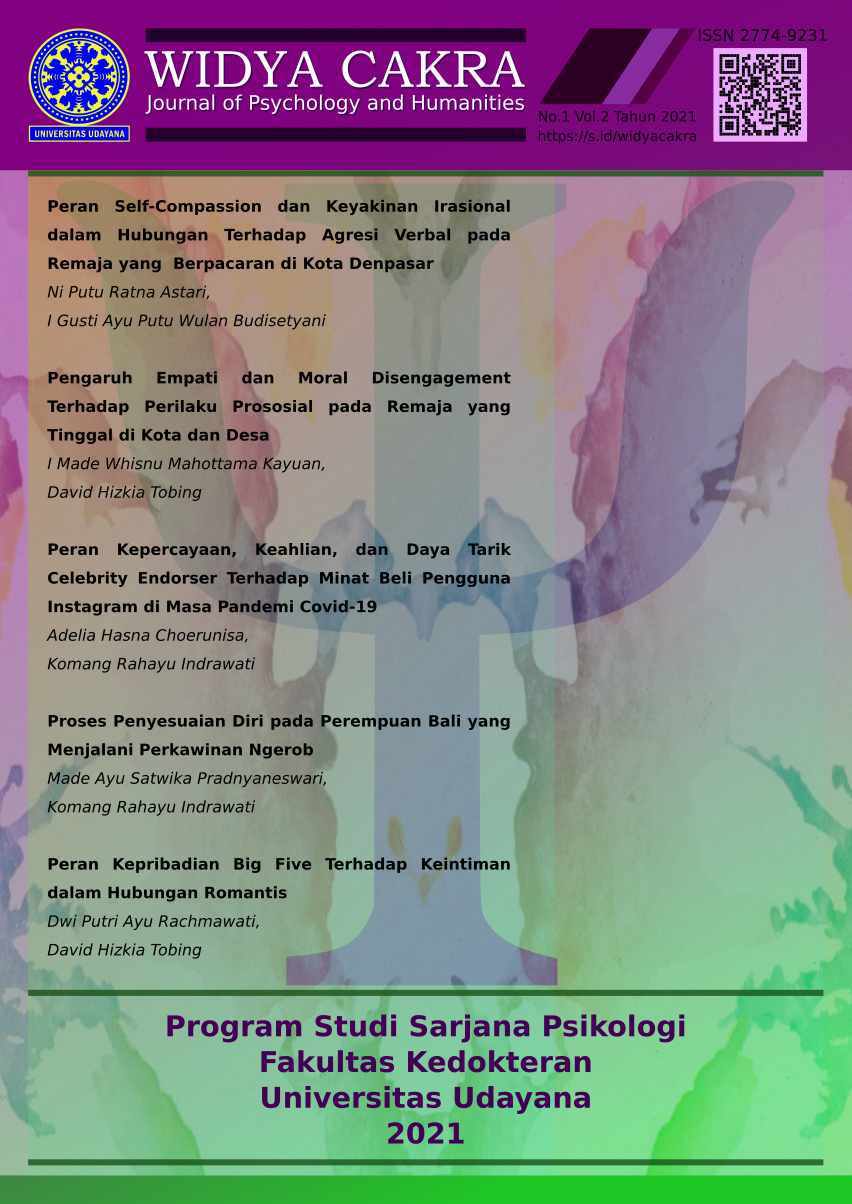THE INFLEUENCE OF EMPATHY AND MORAL DISENGAGEMENT TOWARD PROSOCIAL BEHAVIOR IN ADOLESCENT THAT LIVED IN URBAN AND RURAL AREA
Abstract
Adolescent is an important phase in human growth, in this phase individual start to step into adulthood and start to develop their own characteristic. Adolesent is also the time to develop prosocial behavior. Prosocial behaviors are sets of good behaviors or helping behaviors done by individual with or without expecting something in return. Prosocial behavior can be influenced by many things such as the environment or society they lived in. This study is intend to see how empathy and moral disengagement influence prosocial behavior in adolescent who lived in urban and rural areas. This study conducted using quantitative methode where the subjects are people of age 16-22 years old whose lived in either urban and rural areas in Bali. Subjects in this study are choosen using purposive sampling methode, and the data analysis technique used is multiple regresion. For measuring the variabel in this study three measurement instrument that has been translated into Bahasa Indonesia are being used, those are Prosocial Tendencies Measurement, Interpersonal Reactivity Index, and Moral Disengagement Scale. This study found that empathy and moral disengagement simultaneously contribute in increasing 11.9% of prosocial behavior.
Downloads

This work is licensed under a Creative Commons Attribution-NonCommercial 4.0 International License.









